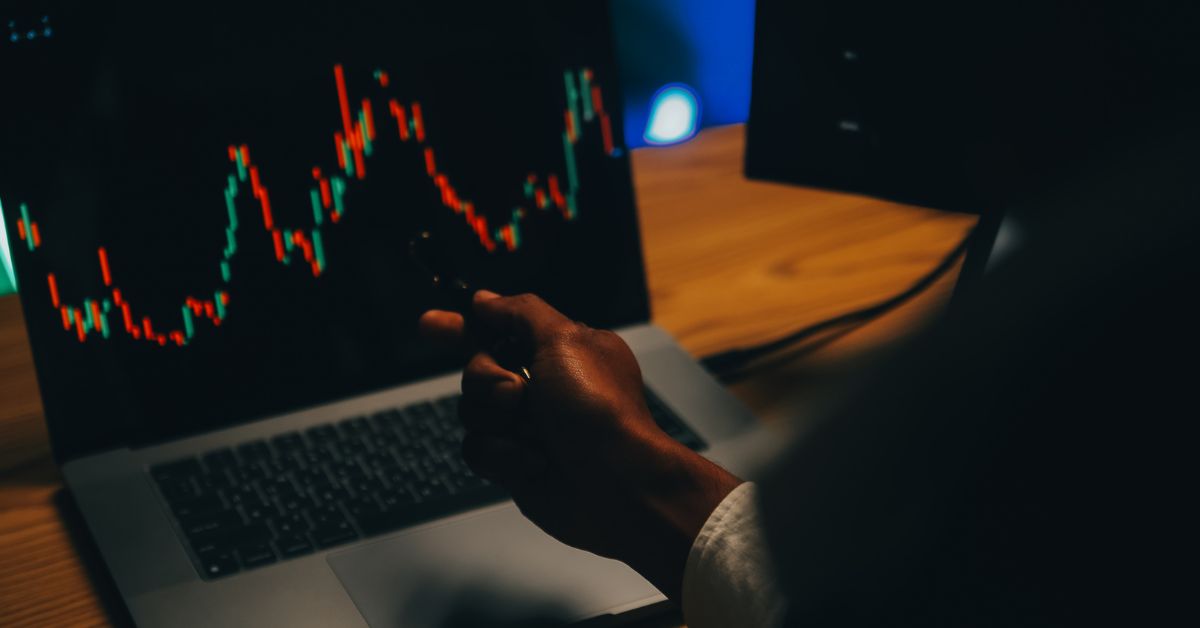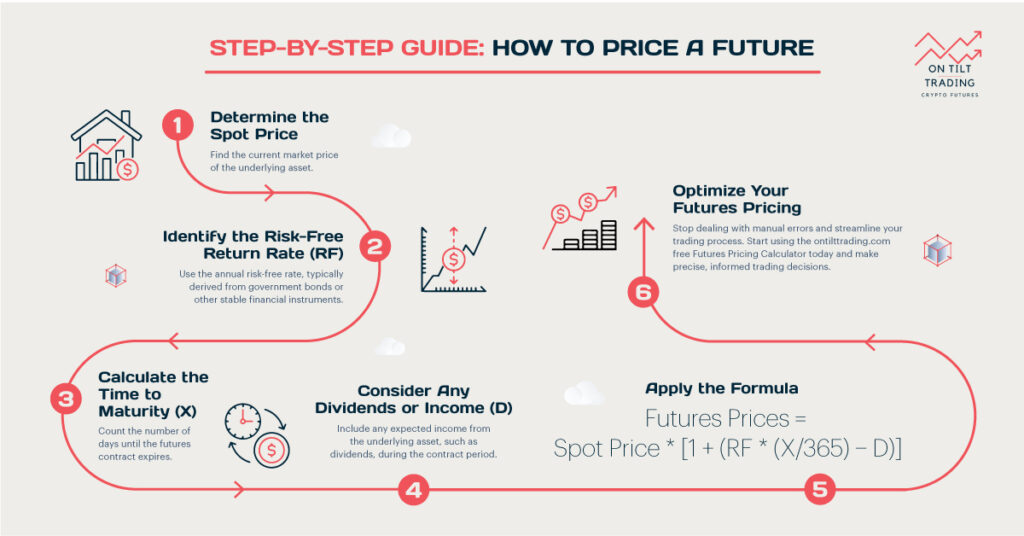In recent years, futures trading has become a popular way for investors to diversify their portfolios. Individuals can speculate on the future price of assets, including commodities and financial instruments. But is futures trading the best investment strategy available today?
In this article, we will examine the intricacies of futures trading, its advantages and disadvantages, and its comparison to other trading methods. This will give you a better sense of whether futures trading fits your investment goals. Let’s dive in.
What is Futures Trading?

In futures trading, you buy and sell contracts to deliver assets in the future, not the assets themselves. Futures contracts commit the buyer and seller to purchase and sell an asset at a predetermined price on a specified date in the future. These traders speculate on commodities like oil and gold, financial instruments like bonds and interest rates, and indices like the S&P 500.
Futures trading is relatively simple, but you need a solid understanding of market dynamics to be successful. In a futures contract, you’re essentially betting on the future price of the underlying asset.
If you think crude oil will rise in three months, you can buy a futures contract at the current price. If the price goes up, you can sell the contract at the higher market price before it expires, pocketing the difference. On the other hand, you’d lose money if the price dropped.
Futures contracts come in different types, each catering to various market needs. Commodity futures cover agricultural products, metals, and energy. Futures contracts also include currency, interest rate, and government bond contracts.
Traders can speculate on the overall market direction with index futures, which are tied to market indices. Futures contracts offer unique opportunities and risks, so traders need to choose contracts that align with their investment strategy.
Advantages of Futures Trading
The benefits of futures trading appeal to both novice and experienced investors. These advantages make futures contracts a popular choice for diversifying portfolios and managing risks.
Leverage
Leverage is one of the most compelling advantages of futures trading. It allows traders to control a large position with little capital, increasing the potential returns of a trade. For example, you might be able to control a $100,000 futures contract with $10,000. Although leverage can boost profits, it also magnifies losses, so risk management is crucial.
Liquidity
There will always be plenty of buyers and sellers in future markets due to their high liquidity. Traders can enter and exit positions quickly without causing significant price movements because of this high level of liquidity. As a result of high liquidity, futures contracts are less vulnerable to price manipulation.
Diversification
It offers excellent opportunities for portfolio diversification. Futures contracts give investors exposure to commodities, financial instruments, and indices. Diversification can help spread risk and reduce the impact of adverse price movements. For instance, if you hold stocks, bonds, and commodities futures, a downturn in the stock market might be offset by gains in commodities.
Hedging
Futures contracts enable traders to hedge their investments against price movements that are unfavorable. Farmers, for example, might use futures contracts to lock in the price of their crops ahead of harvest, ensuring they get the same price regardless of market fluctuations. Businesses that use raw materials can hedge against rising prices, stabilizing their production costs.
Tax Benefits
The tax advantages of futures trading can vary from jurisdiction to jurisdiction. In the United States, 60% of profits from futures trading are taxed at the lower long-term capital gains rate, while 40% are taxed at the short-term rate. Active traders can benefit from a lower tax burden due to this blended rate.
Disadvantages of Futures Trading

Despite its many advantages, it has several risks and challenges. Trading is all about understanding these disadvantages and managing your investments efficiently.
Risk of High Leverage
Although leverage can amplify profits, it also significantly increases the risk of substantial losses. The high leverage involved in futures trading can result in small price movements that result in significant losses.
For example, a 1% drop in the underlying asset’s price could result in a 10% loss in a leveraged position. Therefore, traders need a robust risk management strategy and to be ready for the possibility of significant losses.
Complexity
Futures trading is inherently complex and requires an understanding of market mechanics and specific instruments. Unlike stocks, where you own a piece of the company, futures contracts involve speculation about an asset’s future price. For beginners, it may take some time and effort to master this complexity.
Volatility
Futures markets have high volatility so that prices can swing quickly and unexpectedly. It’s tough to manage volatility, especially if you don’t have the tools or experience. It is a double-edged sword because high fluctuations can lead to significant profits or big losses.
Costs and Fees
The costs and fees associated with futures contracts can reduce profits. These expenses may include commissions, margin requirements, and other trading-related costs. Typically, commissions are charged per contract, and frequent trading can add up. In addition, margin accounts require a certain amount of capital to be deposited as collateral, which can tie up money.
Is Futures Trading the Best?
Investors find futures trading attractive due to its leverage, liquidity, diversification, and hedging options. Despite the benefits, leverage, market complexity, volatility, and costs, it is not suitable for everyone. Whether it is the best option depends on an individual’s risk tolerance, experience, and investment goals.
While it can maximize returns and manage risk for some, the potential downsides may outweigh the benefits for others. Ultimately, you should carefully consider your financial situation before trading futures.
Who Should Consider Futures Trading?
Futures trading isn’t for everyone, and some investors are better off using this specialized strategy. People who should consider futures trading have these characteristics:
Experienced Investors
It requires a thorough understanding of financial markets, trading strategies, and risk management techniques. Traders who have a solid understanding of market dynamics and are comfortable navigating complex trading environments should consider it. Futures traders who have a finance background or extensive trade experience are more likely to succeed.
High Risk Tolerance
It has high leverage and volatility so that losses can happen as quickly as gains. Futures traders should have a high tolerance for risk and be prepared to lose a lot of money. Traders must manage their emotions when dealing with market fluctuations and be comfortable with the idea that not all trades will be profitable.
Educated and Informed
Successful futures traders invest time in learning about market trends, economic indicators, and geopolitical events. Education resources such as books, courses, and webinars can help traders navigate the futures markets effectively.
Adequate Capital
The potential for significant losses makes futures trading require adequate capital to withstand market downturns. You shouldn’t take risks with money you need for essentials; only invest money you can lose. Without margin calls, traders can take advantage of market opportunities without having to exit prematurely.
Strategic and Disciplined
Futures trading demands a strategic approach and strict discipline. You should have a well-defined trading plan, including entry and exit strategies, risk management protocols, and position sizing rules. Long-term success in futures trading requires discipline and sticking to the plan, even in volatile markets.
Tips for Successful Futures Trading

Developing successful futures trading strategies requires disciplined execution, strategic planning, and continuous learning. Here are some essential tips for navigating futures trading and increasing your chances of success:
Research Thoroughly
Research the markets you want to trade before you start trading. Identify underlying assets, market trends, and factors that affect price movements. Keep up with financial news, analysis reports, and economic indicators. Staying informed can help you make better decisions in futures trading.
Develop a Trading Plan
It requires a well-defined trading plan. Describe your trading goals, risk tolerance, entry and exit strategies, and position sizing. If you have a plan, making impulsive decisions based on emotions is less likely. Make sure you stick to your plan, but be flexible enough to adjust it.
Manage Risk Effectively
The cornerstone of successful futures trading is risk management. Don’t risk more than a small percentage of your trading capital on a single trade. Use stop-loss orders to limit losses. Spread your risk across different markets and assets. Maintaining your capital is crucial for long-term success.
Start Small
If you’re new to futures trading, start small to gain experience and build confidence. Gradually increase your position size as you get more comfortable with trading and learn more about markets. You can learn from mistakes without putting a lot on the line.
Stay Disciplined
Trading emotions can lead to poor decisions and significant losses. Follow your trading plan and stick to your strategies, even when the market is volatile. After a winning streak, don’t chase it or get overconfident. Long-term profitability in futures trading requires consistency and discipline.
Read More: How To Make Money Trading Crypto Futures
Conclusion
Futures trading offers significant opportunities but also substantial risks. Success requires understanding its intricacies, managing risk effectively, and maintaining discipline. Whether you’re a beginner or an experienced investor, you can make a big difference in your trading results.



